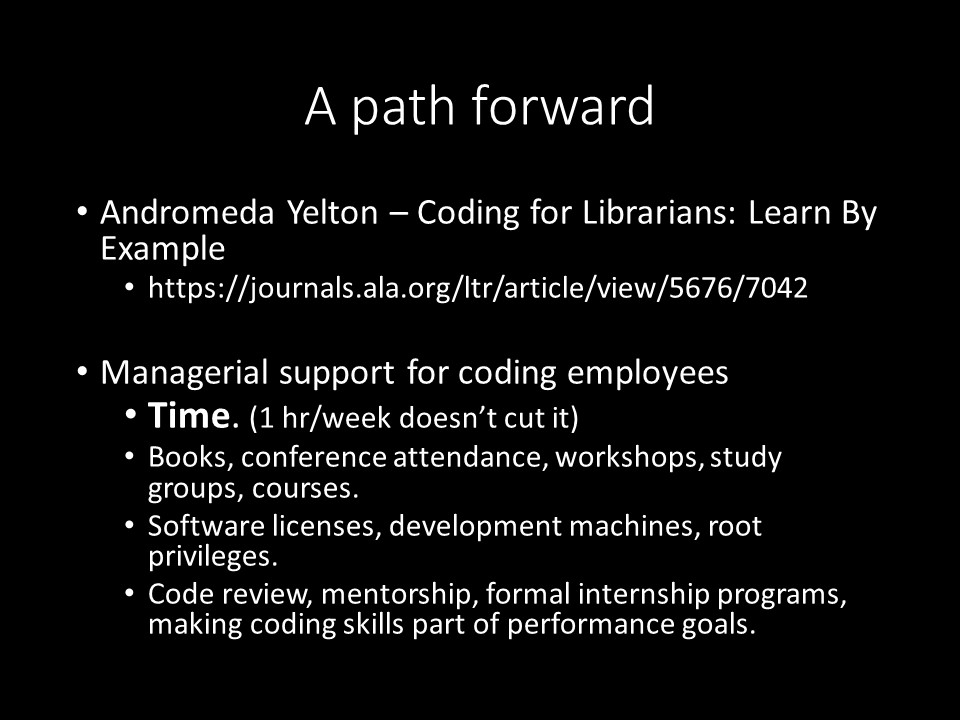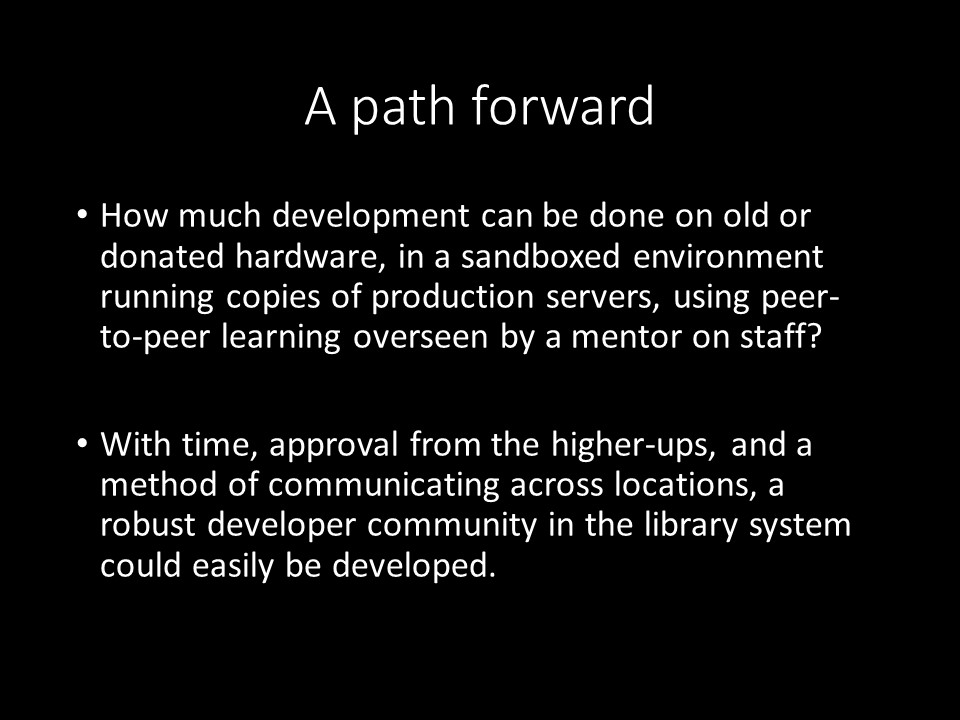A Path Forward

Andromeda Yelton, in Chapter 6 of Coding for Librarians: Learning By Example, runs down a list of support that managers can provide to employees that are looking to improve or pick up code skills:
- time: finding ways for planned projects to include learning new technologies, setting aside time for learning and experimentation, defending this time to upper management
- books
- software licenses
- root privileges, development sandboxes, testing servers, quality hardware: in short, the ability to install and experiment with software
- conference attendance: supported in time, money, or both
- workshops: some paying for attendance, others teaching them personally
- regular study groups, such as the one at the University of Maryland libraries or the George Washington University code reading group
- courses: online (such as Lynda.com, Code School, RailsCasts, Treehouse) or face-to-face, through tuition remission in the case of academic libraries
- code review
- mentorship
- formal internship programs
- making coding skills part of supervisees' performance goals, which helps justify other forms of support

That's a pretty big lift for a library system that doesn't have a lot of dollars around, if you think of this support list as something that requires proprietary systems, hefty hardware, and/or formal tuition at an institution of higher learning. Truthfully, for a lot of code and code experiments and ideas, whether as formalized programs meant for public attendance, or as staff training and primarily peer-to-peer learning, can probably be done on old hardware sitting in a sandbox somewhere, running open source tools, development environments, and other free or donated equipment, assuming the IT department is okay with setting it up and making sure that things don't stray from their appointed paths, as well as providing tools for communication across distance (as it's likely the people who are most interested in learning these skills are ones sitting at desks in different locations in the same library system). Getting expertise on board might be the most difficult part of setting up a system like this that allows for experimental learning.